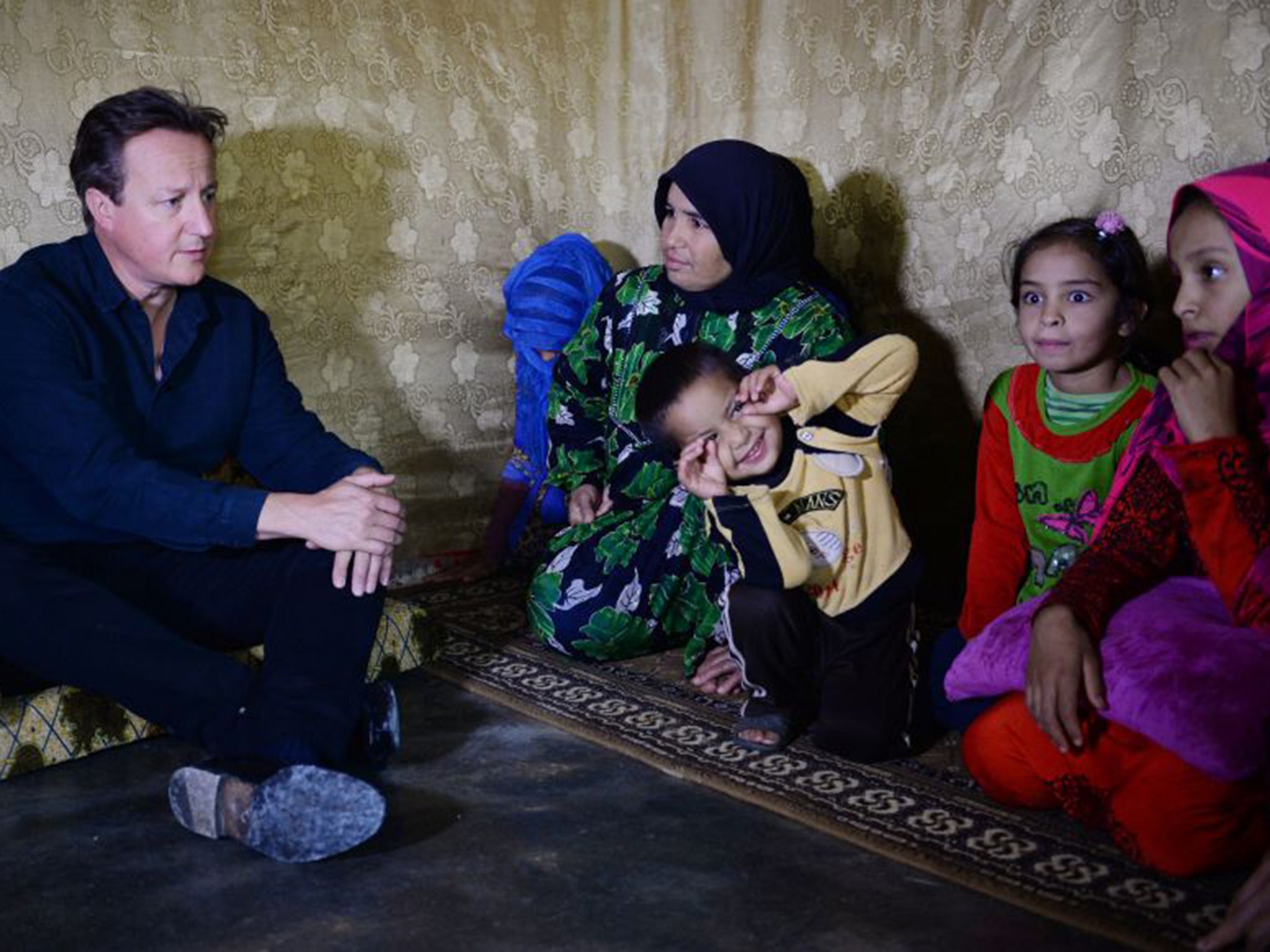What I learned from speaking to the refugee child labourers who Cameron met in Lebanon this week
Giving more aid is all very well, but failing to use Britain's influence to end the war in Syria is a travesty

Last week, while I was in Lebanon, I spoke to a group of child labourers living in an informal refugee camp. These girls and boys with exhausted faces and dirt underneath their fingernails were all under the age of 14. What were they going to use their wages for? “To rebuild our houses in Syria, when the war is over and we can go back home,” they replied.
This is a common sentiment among Syrian refugees in Lebanon, many of whom live only a few kilometres from the border with their homeland. Most people are too poor or too worn out by the journey they’ve already made to attempt to get to Europe - what they really want is to be able to go home and begin the process of rebuilding their shattered lives and country.
On his visit to Lebanon and Jordan this week, David Cameron will have been confronted with the stark reality of life for Syrians here. More than four years into the war, hundreds of thousands of families in Lebanon are living in flimsy plastic sheeting shelters like the one he sat and posed for photographs inside. In these camps, open sewers run through and flood every winter during the heavy rains and snow. It’s hardly a luxurious escape from their war-torn homeland.
Our prime minister was visiting the region to highlight the way UK aid is improving the lives of Syrian refugees, and there is no doubt that it is. In Lebanon, with the help of British aid money, Save the Children is running education projects and helping people to rehabilitate the tents and leaky garages they live in before winter hits. In Jordan, Cameron visited one of our youth centres in Zaatari, where young people take part in work training and social activities. These are admirable developments – but they are not excuses to turn a blind eye to the cause of the problem.
It’s vital that all wealthy countries maintain and increase their aid to refugees in the countries bordering Syria. By increasing funding we could make sure that children don’t have to work in the fields to support their families, that they can take the time to pursue an education and that all displaced people have enough to eat and a dry place to sleep.
But we have to be honest with ourselves: even with more aid, refugees will still be living in incredibly difficult circumstances in countries that do not want them. For more than four million Syrians to be hosted by countries in the region indefinitely is not a sustainable solution.
The only way to truly ensure Syrian children have a future - and to stop people wanting to risk their lives to get on a boat to Europe - is to end the war.
World leaders appear to have given up on finding a solution to the situation in Syria, where civilians still die daily from mortar shells, sniper fire, barrel bombs, and the hunger and disease caused by ongoing sieges. If you need proof of how this has psychologically affected the children fleeing the region, all you need to do is take a look at some of these crayoned drawings of the kids in the refugee camps, all of whom were told to depict their fears for the future.
Save the Children staff on the ground - all of them Syrian - risk their lives to keep a network of schools and clinics running as the humanitarian situation gets steadily worse. But they and other Syrians like them have been left to fend for themselves as our leaders have allowed politics to get in the way of protecting human life.
The UK government is to be commended for increasing aid funding for Syrians, but it should also be using its influence to push for urgent new peace talks involving all parties. Our influence is worth a lot on the world stage, and can go further than merely throwing cash at the problem.
Ending the bloodshed in Syria will take more than empty promises - the international community should be looking at radical solutions that protect civilians and allow humanitarian relief to reach everyone who needs it. Otherwise, we are going to leave a generation of Syrian children to grow up in limbo, homeless and without hope.



Join our commenting forum
Join thought-provoking conversations, follow other Independent readers and see their replies